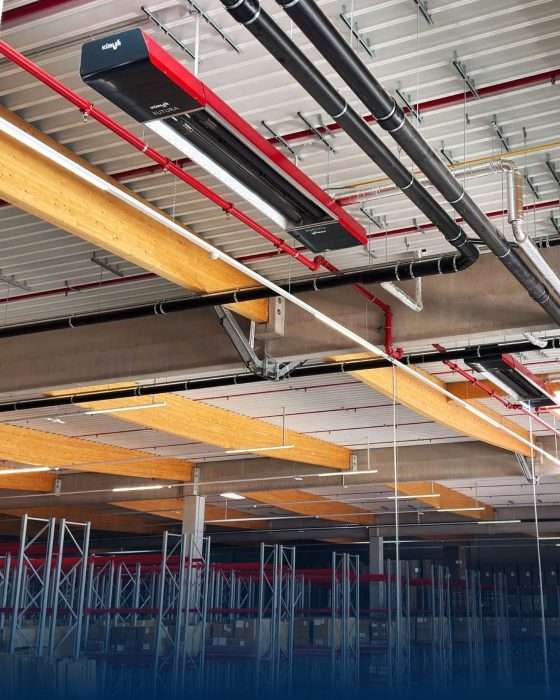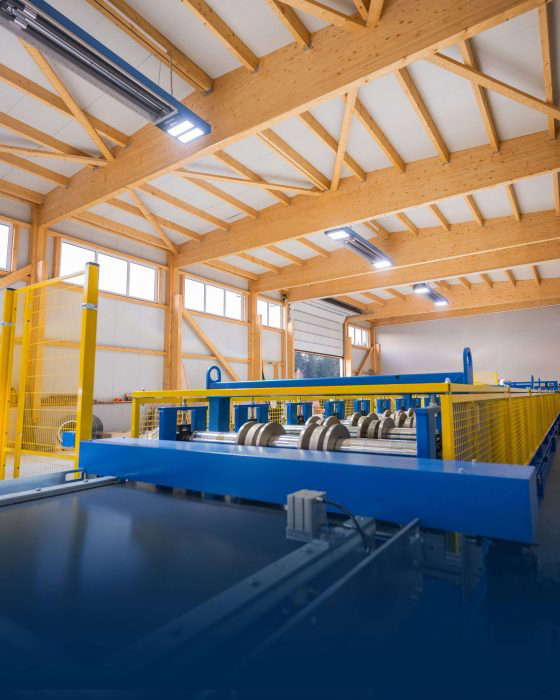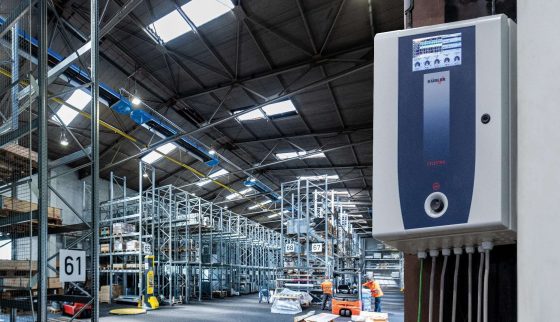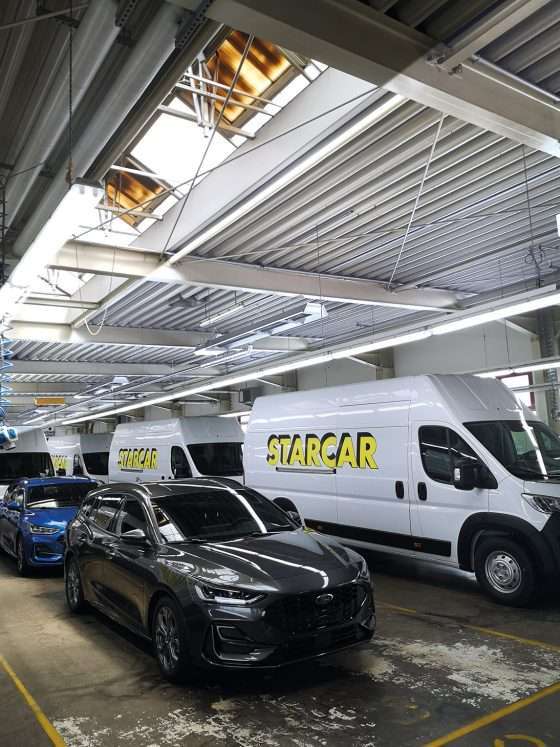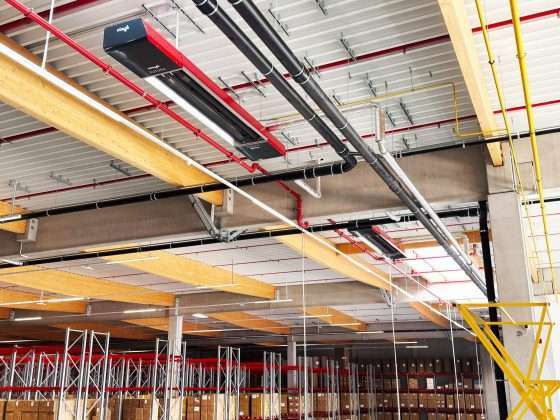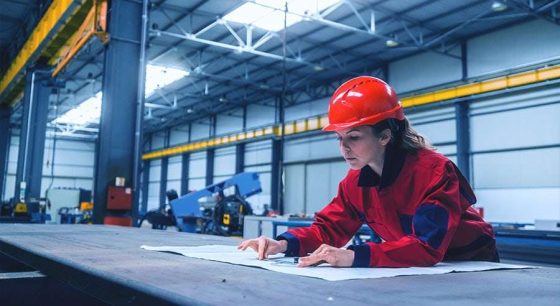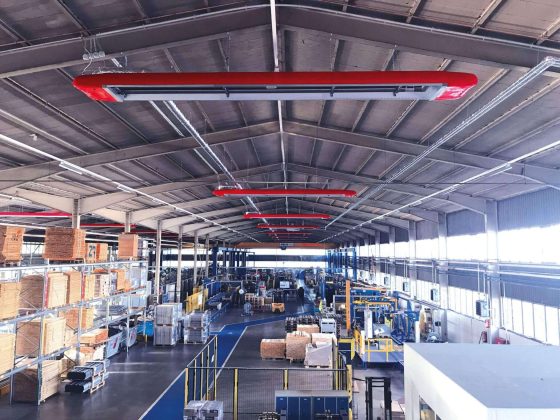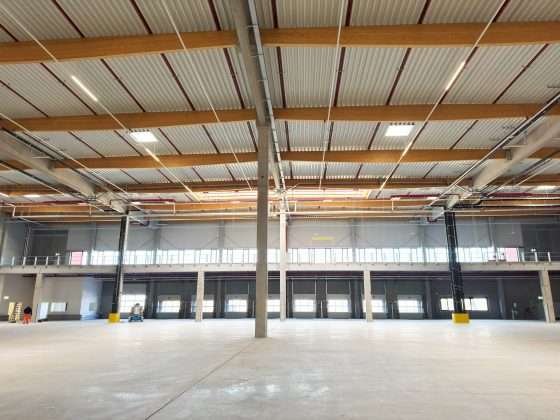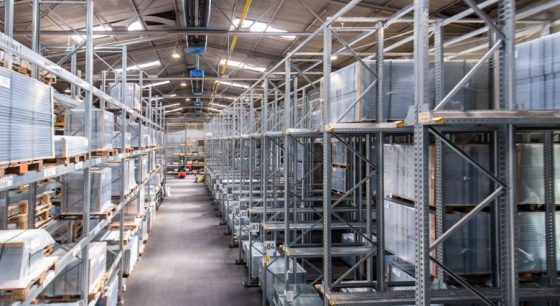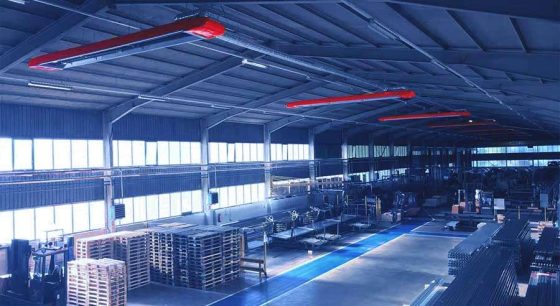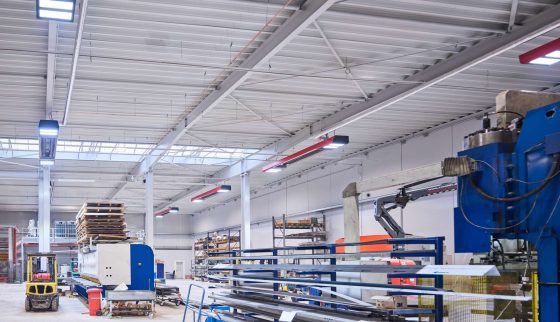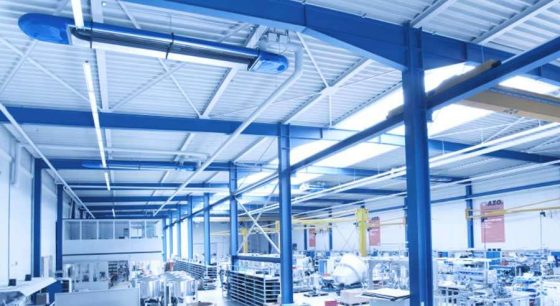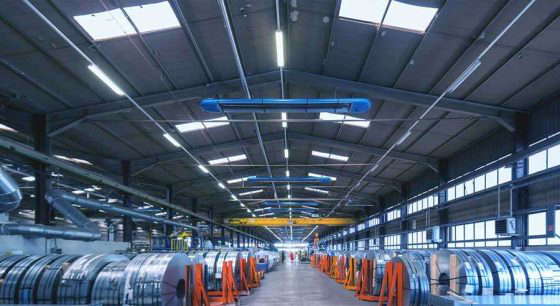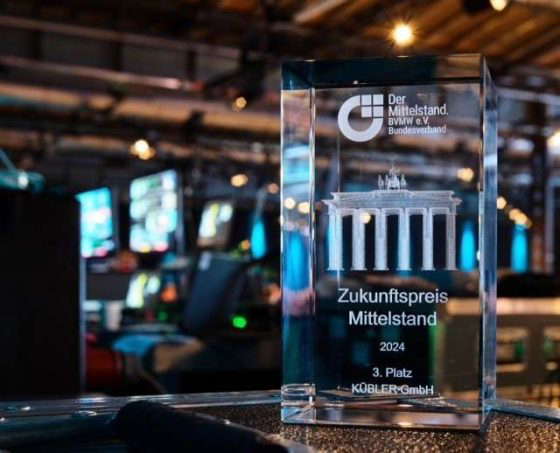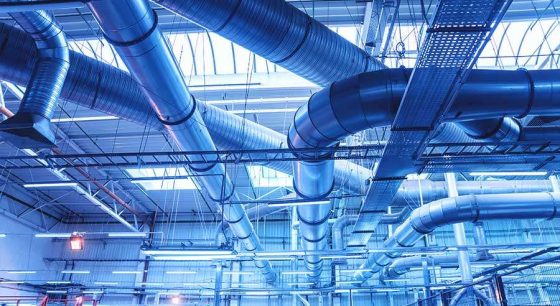KÜBLER hall heating
Blog
Stay up to date with our latest news and insights designed to meet the needs of modern industrial and commercial spaces. You'll not only find products, but also inspiration and ideas on how to take your business forward with improved heating technologies.
Let's discuss your project
Request a non-binding guide now
-
Germany has a huge number of buildings whose heating systems waste energy every day and produce far too much CO₂. With regard to the use of renewable energies and modern technologies, it is by no means just an old stock that urgently needs to be refurbished. Many newly built halls are also equipped with outdated [...]
-
Mr. Kübler, your company produces heating systems for halls. These only make up a small proportion of all buildings in Germany. Why is it nevertheless important to save as much energy as possible in this area? That's right, halls only make up around 1.5 percent of all buildings in Germany, so most people don't notice them. Even [...]
-
Christmas is once again approaching surprisingly quickly - and, unfortunately, one or two challenges are on the horizon. From 3G and 2G plus to the next increases in energy prices. Congratulations if you have already converted your hall heating to an economical system from KÜBLER. This is a really good decision in many respects.
-
What is a dark radiator (really)? In everyday life, the term "dark radiator" is often used interchangeably with infrared radiant heaters. It is also often used to refer to electric infrared heaters. People even talk about electric dark radiators. From a technical point of view, however, this is not really correct. Dark radiators in the true sense of the word are gas-powered infrared heating systems that bring heat into halls in a particularly efficient way. To do this, […]
-
In comparison, fan heaters rely on the distribution of warm air. This method causes the air in the hall to rise, with the warmest areas being directly under the ceiling. It therefore takes significantly longer for the work area to warm up, which leads to higher energy consumption. This difference makes infrared heating systems particularly energy-efficient, […]
-
The decision on the Heating Act (Building Energy Act - GEG) has been made, but the questions remain. But there is no need to worry: the legislator has provided for generous transition periods, technological openness and pragmatic, affordable regulations for the gradual move towards climate-neutral heating by 2045. Dr. Jens Findeisen explains what you need to know now when heating commercial and industrial buildings
-
Existing buildings: No obligation to use renewable energies On the road to a CO2-free future, energy efficiency is perhaps the most important pillar of decarbonization—because, as „low-hanging fruit,“ efficiency measures to reduce CO2 are usually easier, faster, and more cost-effective than substitution with renewable energies. That is why high-efficiency solutions such as infrared hall heating systems from KÜBLER, which have been proven to [...]
-
Save energy costs and protect the environment: Dark radiant heaters are among the most efficient heating systems for halls that you can buy. But which infrared system is right for you? We give you an overview.
-
The search for suitable optimization potential in energy-related processes in industrial and commercial companies is not always easy for energy management. Especially as measures in efficiency technologies and renewable energies cost money and the budget is often lacking. Many - ecologically and economically important - measures then fall by the wayside. But does that have to be the case?
-
Do you want to get the most out of your new hall heating system, save energy costs and be prepared for the environmental laws of the future? Then it is advisable to consider a few tips before you buy. Find out which ones in this article.
-
Hot air, panel heating or infrared? There are many different heating systems to choose from for heating halls. This article will give you an initial overview of the six most relevant systems.
-
Like all sectors, industry must also do its part to protect the climate and combat global warming. An important point here is investing in energy-efficient, environmentally friendly heating systems. Read this article to find out the specific reasons for doing so.
-
The energy crisis is currently leaving no one indifferent. Everyone is desperately looking for ways to get consumption and costs under control to some extent. The German government's price brake will not take effect until March 2023, and even then, the prices for 30 percent above the basic quota for industry and 20 percent for small and medium-sized enterprises will still be subject to the wild market conditions next year. So what to do?
-
The most important facts in brief: The European Emissions Trading System (EU ETS) has been in force since 2005. Based on the cap-and-trade principle, it regulates the emissions of energy-intensive companies and the energy industry through certificate trading. To implement this into national law, CO₂ pricing (also known as CO₂ tax) for fossil fuels was introduced in Germany in 2021 and regulated by the Fuel Emissions Trading Act (BEHG). From [...]
-
A new heating system for your company's hall is a decision that needs to be carefully considered. Read this article to find out which facts speak in favor of an infrared radiant heater!
-
Climate protection remains highly relevant for the new German government. The previous climate targets are confirmed - in the full knowledge that global warming is a global problem and that the international community must work together to solve it. Climate protection should bring together economic competitiveness and social balance, with a focus on innovation. What is important is the commitment that Germany will remain an industrialized country and at the same time be climate-neutral [...]
-
Fair.AIdH - ideal heating systems for special buildings Halls have different heating requirements than office or other multi-storey buildings. As a rule, "normal" hot water heating systems inevitably fail due to the enormous room heights and dimensions: they consume an unreasonable amount of energy, offer little flexibility and thermal comfort, can hardly be controlled variably, heat hall ceilings instead of work areas, are often simply uneconomical and [...]
-
According to the IMD Competiveness Ranking 2024[1], our once leading industrial nation has slipped from 6th to 24th place in just ten years. 45 percent of industrial companies with high electricity costs are planning or implementing plans to reduce their production or relocate it abroad. And the trend is rising[2]. Increasing bureaucratic costs and the extremely high level of energy prices in our country are causing many companies to [...]
-
Heating industrial and event halls economically and flexibly: radiant heaters are ideally suited for this job. An overview of how they work, types and possible applications.
-
Infrared hall heating in your production: How to create the right indoor climate for your productionIndoor buildings are a world of their own. Especially in winter. The high rooms pose a real challenge for anyone who wants to ensure the most pleasant working climate possible. But there are solutions - infrared hall heating, for example.
-
The energy-flexible new development FUTURA from hall heating specialist KÜBLER is the winner of the BVMW Future Prize 2024. Founder and managing director Thomas Kübler accepted the award in front of around 6,000 participants at the BVMW Future Day at Station Berlin.
-
ESG stands for Environmental, Social and Corporate Governance and refers to the three key areas of sustainable corporate management: environment, social affairs and corporate governance. But what does this have to do with you and the way you heat your production halls and warehouses?
-
Only around half of German companies are aware of their waste heat potential - as dena writes in its publication on waste heat utilization as part of the Energy Efficiency Initiative. This means that an estimated 226 TWh of usable heat goes unused every year. That is 36 % of the energy used by the entire manufacturing industry. This clearly costs companies an enormous amount of money, but at the same time the unused waste heat has a negative impact on the environment. Around 60 million tons of the greenhouse gas CO₂ evaporate unnecessarily into the atmosphere every year. In view of rising energy costs and climate protection targets, companies simply can no longer afford to do this.
-
Almost all machines produce waste heat. Compressed air systems or curing ovens are at the forefront here, with enormous heat emissions. However, this usually dissipates unregulated in the building, which is annoying. On the one hand for the environment, but above all for business management. This is because a lot of energy is wasted in this way, which has to be paid for expensively elsewhere.
